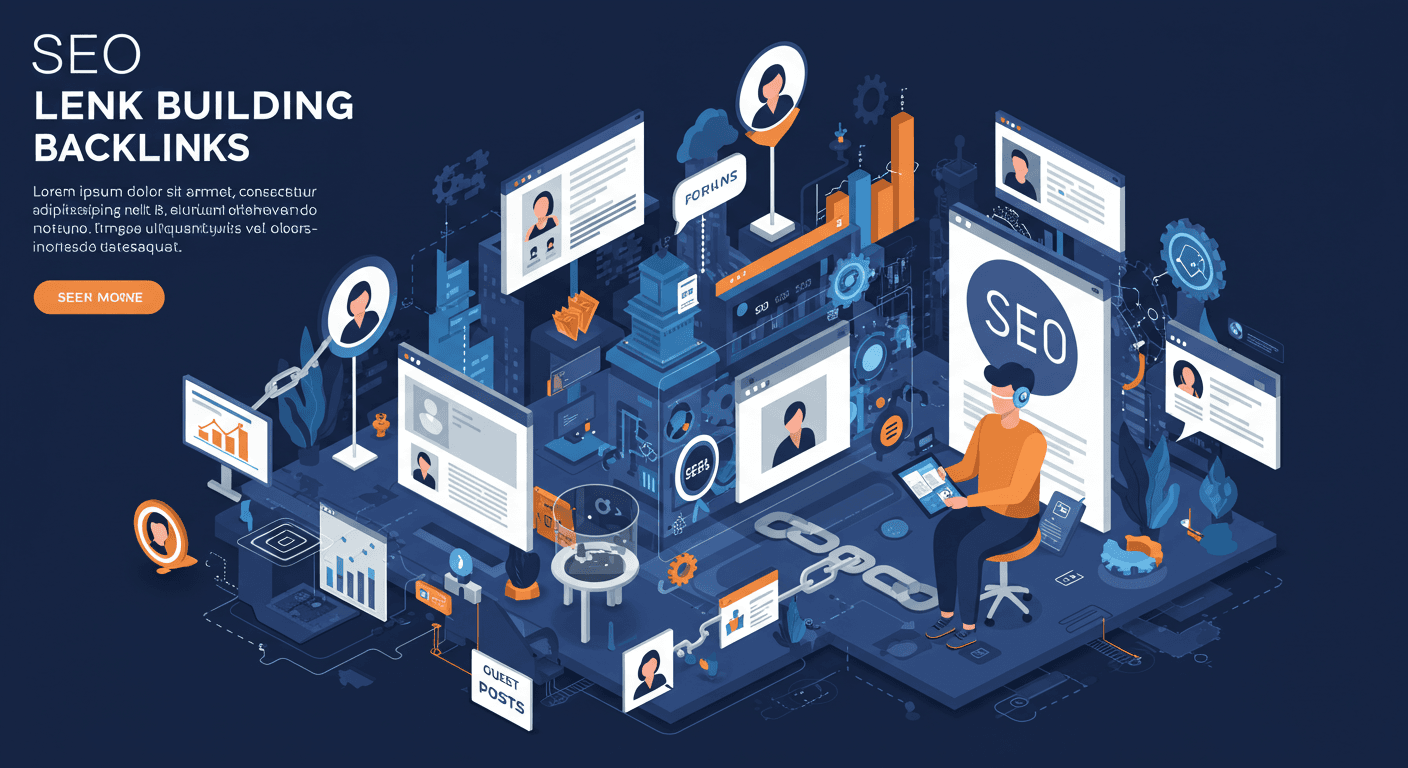The Power of an SEO Link Builder: Why Backlinks Still Matter in 2025
- Authors

- Name
- Geeks Kai
- @KaiGeeks

Introduction
In the ever-evolving world of digital marketing, one element remains consistently powerful — backlinks. Despite algorithm changes and emerging trends, link building continues to play a crucial role in search engine optimization (SEO). At the heart of this strategy is the SEO link builder — a specialist who crafts, negotiates, and earns high-quality backlinks that improve a website's authority and search engine rankings.
What Is an SEO Link Builder?
An SEO link builder is a digital marketing professional focused on acquiring links from other websites to your own. These links act as "votes of confidence" in the eyes of search engines like Google. The more high-quality backlinks a site earns, the more likely it is to rank higher for relevant search queries.
But it's not just about volume. Modern link building is about relevance, authority, and trust. A skilled SEO link builder knows how to identify opportunities that align with a brand's niche and content strategy, ensuring every backlink serves a purpose. That's where Monthly Link Building Services come in—providing consistent, strategic outreach and backlink acquisition that supports long-term SEO growth.
Why Link Building Still Matters in 2025
While Google's algorithms have grown smarter over the years, backlinks remain a top-ranking factor. Here's why:
Authority Signals: Backlinks from reputable websites tell Google that your content is valuable and trustworthy.
Referral Traffic: A link from a high-traffic blog or news site can drive relevant visitors directly to your website.
Indexing & Discovery: Search engines discover new pages through links. A strong backlink profile ensures your content gets found and indexed faster.
Competitive Edge: In saturated industries, link building can be the key differentiator that pushes your site above competitors.
Key Responsibilities of an SEO Link Builder
The role of a link builder goes far beyond simply placing links. Here are some of the critical tasks they handle:
Prospecting – Identifying potential websites, blogs, and influencers for collaboration.
Outreach – Crafting personalized messages to webmasters and content creators.
Content Collaboration – Suggesting guest posts, link inserts, or expert contributions.
Monitoring Backlinks – Using tools like Ahrefs, SEMrush, or Google Search Console to track backlink health.
Competitor Analysis – Studying what's working for competitors and replicating or improving those strategies.
Ethical Link Building vs. Black Hat Tactics
There's a fine line between white-hat SEO (ethical link building) and black-hat SEO (spammy or manipulative tactics). A professional SEO link builder understands this distinction and adheres to practices that align with Google's guidelines, such as:
Earning editorial links through value-driven content
Building relationships with industry-relevant publishers
Avoiding paid link schemes, link farms, and automated link generation
Tools Every SEO Link Builder Should Use
Modern SEO link building requires data, research, and automation. Here are some popular tools in a link builder's toolkit:
Ahrefs – For backlink analysis and competitor research
BuzzStream – For managing outreach campaigns
Hunter.io – For finding email addresses of website owners
SEMrush – For tracking link-building campaigns and keyword data
Majestic – For measuring trust flow and citation flow of link sources
Conclusion
In today's competitive online landscape, an SEO link builder is an indispensable asset. By building a strategic, ethical backlink profile, businesses can boost visibility, establish authority, and drive sustainable organic growth.
Whether you're an entrepreneur, content creator, or digital agency — investing in professional link building is a step toward long-term SEO success.